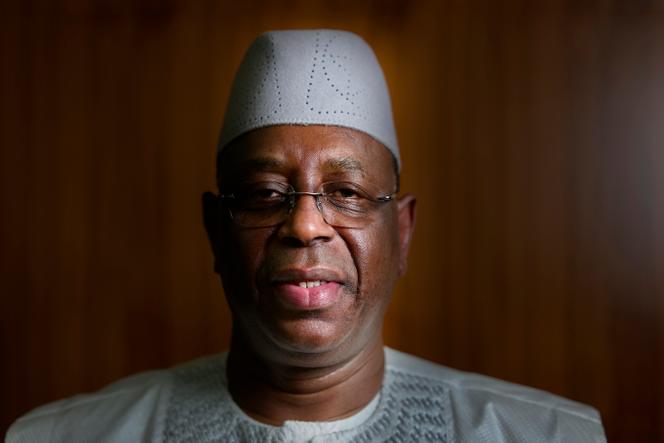


He was minister, prime minister, then president of Senegal for two terms. In more than 20 years occupying the highest political offices in his country, Macky Sall has acquired uncommon political acumen, first succeeding in gradually raising himself to the top of the state, then putting all those who might have dislodged him from it out of harm's way. The aura of the man who, until recently, was negotiating on behalf of Africa with Vladimir Putin and Volodymyr Zelensky, went far beyond the borders of his country, as did his reputation as a great tactician.
"Until now, Macky Sall has always been one step ahead," said a West African minister who has worked with him on numerous occasions. But just as he was preparing to step down after the presidential election due to be held on February 25, he suddenly seemed to have lost his grip on power and plunged his country into a political crisis as serious as it was unexpected.
On February 3, 48 hours before the start of the presidential campaign, he appeared on television at lunchtime: "I have repealed the decree convening the electoral body," he said. It was an unprecedented decision in the country's history, but one that the judges of the Constitutional Council overturned.
The judges have ruled that Sall will have to step down on April 2, at the end of his second term in office. The fundamental law does not authorize him to remain in power, even if the presidential election has been postponed to a date still unknown. Sall has since been sounding out his advisers, listening to them and devising a strategy to ensure that he "gets out through the front door" – the obsession of his advisors.
In his speech on February 3, he explained his choice by the need to shed light on the accusations of corruption leveled by an opposition group, the Parti Démocratique Sénégalais (center), against two judges on the Constitutional Council. But these justifications were not convincing. The man described by his detractors as a "Mackyavelic" hyper-president is suspected of having interrupted the electoral process for fear of seeing his prime minister and designated successor, Amadou Ba, fail at the ballot box.
This defeat could well benefit the camp of the hated opponent, Ousmane Sonko. Incarcerated and excluded from the electoral rolls, Sonko is unable to compete in the presidential elections, but his movement has managed to put forward a candidate, Bassirou Diomaye Faye, who is also behind bars but credible in the eyes of his supporters. To explain the president's decision, some observers have pointed to the overwhelming influence of the hard wing of his party, which would have liked to see him run for a third term. "He's hostage to his entourage," said one source. "Some of those close to him have enriched themselves illegally under his presidency and fear being prosecuted if he loses."
You have 74.19% of this article left to read. The rest is for subscribers only.
